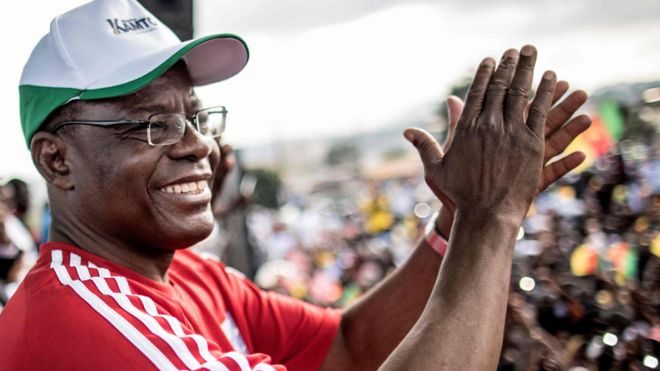Cameroon’s President Paul Biya has ordered the release from prison of his main political rival, Maurice Kamto.
Kamto’s release was ordered on Saturday meaning he walks a free main after insurrection charges against him were dropped.
The government said the move is to help ease tension and lead the country towards national reconciliation.
Kamto was released to a crowd of cheering supporters in the capital Yaounde after after a hearing at a military tribunal.
He came second to Biya in last October’s presidential election, heading the opposition Cameroon Renaissance Movement (MRC) party.
But Kamto denounced the results of the election calling it fraudulent. He was arrested in January after leading protests.
Felix Agbor, one of Kamto’s lawyers, told Reuters that “This release is a good thing. It shows good faith. But I think it’s necessary to pardon others who have already been convicted.”
On Friday Paul Biya also ordered the release of 333 persons detained for taking part in a separatist uprising.
Those detained come from the Northwest and Southwest regions and reportedly played roles in seeking independence for Anglophone Cameroon.
President Biya said in a statement on Twitter that he will drop charges against the 333 prisoners arrested for their alleged roles in two year long uprising.
The Cameroonean president launched peace talks aimed at ending ongoing fighting between insurgents and the military.
More than 1,800 people have been killed and over 500,000 displaced as a result of the fighting.
Anglophones in Cameroon make up about a fifth of the country’s population of 22 million. But they complain of marginalisation in the hands of the French-speaking majority.
Source: Africafeeds.com


